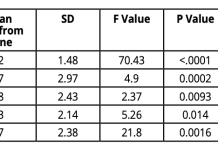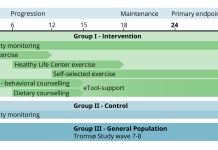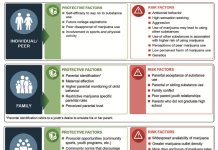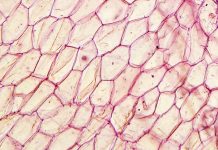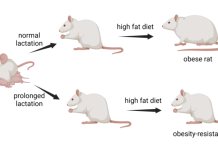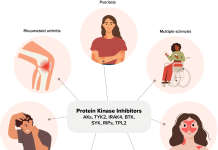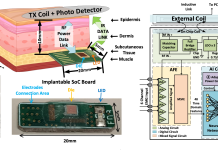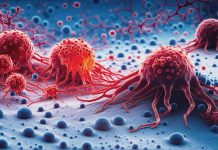Open Access Government produces compelling and informative news, publications, eBooks, and academic research articles for the public and private sector looking at health, diseases & conditions, workplace, research & innovation, digital transformation, government policy, environment, agriculture, energy, transport and more.
Home 2024
Archives
Artificial intelligence (AI) in mammographic screening in Norway
BreastScreen Norway discusses how the results from their screening programme for early breast cancer detection can influence future artificial intelligence to streamline early breast cancer detection.
Innovation in clinical trials in brain health: Computerised assessment and remote clinical trials
New clinical trials in brain health require innovative methodologies for targeted recruitment and longitudinal assessment. Professor Anne Corbett outlines how her team’s PROTECT portfolio can overcome challenges in trials of cognitive health interventions, offering solutions for intelligent trial design.
The ethical and legal challenges of cell donation for brain organoid research
Ethical and legal concerns raised by the use of human biological materials, especially cells from adult donors and foetal tissues, must be thoroughly examined.
A call for intersectionality in gerontological nursing education
Addressing the triple jeopardy of ageism, sexism and racism within healthcare systems is crucial to ensuring equitable health outcomes for all older people, write Professor Jordana Salma, Professor Sherry Dahlke and Professor Kathleen Hunter of the Faculty of Nursing at the University of Alberta.
Detoxification: The science behind social media claims of detox health benefits
Jessie R. Badley and Pamela J. Lein from the University of California, Davis, explain the science behind detoxification and the claims of detox health benefits in social media and the deception associated with it.
RESTART Project Q&A: Empowering healthy aging
In this Q&A, a team from the RESTART project explores their groundbreaking intervention model designed to empower people to embrace healthier lifestyles as they near retirement.
Stroke rehabilitation milestone, neurological conditions and future therapy
Martin Schuettler, Chief Technology Officer of CorTec GmbH, walks us through a groundbreaking achievement in the development of future therapies for neurological conditions like stroke.
Risk factors for cannabis use in young people
With cannabis use among young people on the rise, Ronan Fleury, Prof Bobby Smyth and Prof Mary Cannon. discuss the mental and physical impacts and the importance of understanding the risk factors.
From selfish silo to collaborative culture – embracing data-enabled cancer research
Aedin Culhane and Mark Lawler, Co-Leads of the eHealth Hub for Cancer, reflect on their data-enabled cancer research journeys, how their collaborative team science approach has reaped significant dividends in cancer research and policy and how the hub is inducing a paradigm shift in how health data are deployed on the island of Ireland.
What imaging reveals about engineered endosymbionts
Ashley V. Makela and Christopher H. Contag from the Institute for Quantitative Health Science and Engineering, walk us through watching living therapeutics in action, including what imaging reveals about engineered endosymbionts.
Prolonged lactation: Preventing obesity since infancy
Dr Vincent Prevot and Professors Markus Schwaninger and Ruben Nogueiras explain the significance of the perinatal maternal lifestyle, specifically prolonged lactation, in shielding offspring from chronic disease.
Protein kinases for combating inflammatory disease
Julie Blaising, Discovery Project Leader in Immunology at F. Hoffmann-La Roche Ltd, tells us why protein kinases are an effective target for treating many chronic inflammatory disorders.
AI-empowered neural processing for intelligent human-machine interface and biomedical devices
Jie Gu, Associate Professor from Northwestern University, examines AI-empowered neural processing for intelligent human-machine interface and biomedical devices.
Symptomatic vs. Disease-modifying treatments in neurological diseases: Where next?
An optimal drug for chronic neurological disease would slow down disease progression in the long term, with short-term symptomatic benefits. This would shorten clinical development timelines and reduce the cost and risk level for drug developers. Henri Huttunen Chief Scientific Officer (CSO) at Herantis Pharma Plc explains.
BRAV3 Project: Cardiac regenerative medicine
Prof Felipe Prósper, Head of Department, and Dr Manuel Mazo, from the University of Navarra & Clínica Universidad de Navarra, shares his expertise in cardiovascular diseases, focusing on the work of the BRAV3 project, which includes research in cardiac regenerative medicine.
National sepsis strategy to improve knowledge, prevention and treatment
Discover what you need to know about sepsis from a top group of experts, including their call for a national sepsis strategy to improve its knowledge, prevention, and treatment to save lives.
Treatment of migraines: Minimally invasive surgery, regenerative approach and botox
Giorgio Pietramaggiori and Saja Scherer, MD, from the Global Medical Institute, describe a revolution in the treatment of migraines: minimally invasive surgery, a regenerative approach and Botox.
Personalized cancer medicines
Dr. Priya Hays, PhD, CEO and Science Writer at Hays Documentation Specialists, LLC, guides us through the world of personalized cancer medicines.
Getting leptospirosis onto the lists of neglected tropical diseases
Leptospirosis is a globally important infectious disease, but neglected to the extent that it’s not on WHO’s or FDA’s neglected tropical diseases lists; this needs to change.
Recruiting retired specialists back into part-time practice via telemedicine
Richard J. Santen, MD, Emeritus Professor of Medicine at the University of Virginia in Charlottesville, Virginia, U.S., looks at how to recruit retired specialists to practice part-time via telemedicine.


